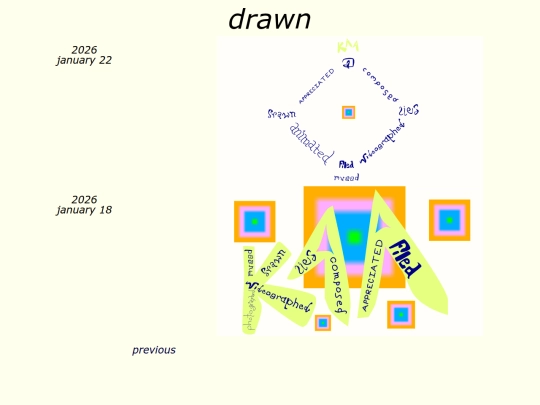I watched this film a short while ago. I recommend it. https://www.canadiantypography.ca/archives/items/making-faces-metal-type-in-the-21st-century-jim-rimmer
1 like
Do Not Praise Mediocre Things: I agree, with some nuance. Early learning requires the appraisal of mediocrity.
1 like
Muru "Music" Mart, you make nice beeps.
2 likes
2 likes
 murumart
8 months ago
murumart
8 months ago
Thank you! Time will continue once again after I'm done with exams and such. The summer's looking good.
1 like
3 likes
Good typography, sweet premise.
2 likes
1 like
I enjoyed your latest muse writing response.
2 likes
1 like




















![[tfpXE] avatar](/site_screenshots/15/25/tfpxe/index.html.50x50.webp)






































































































I enjoyed that video. Thanks